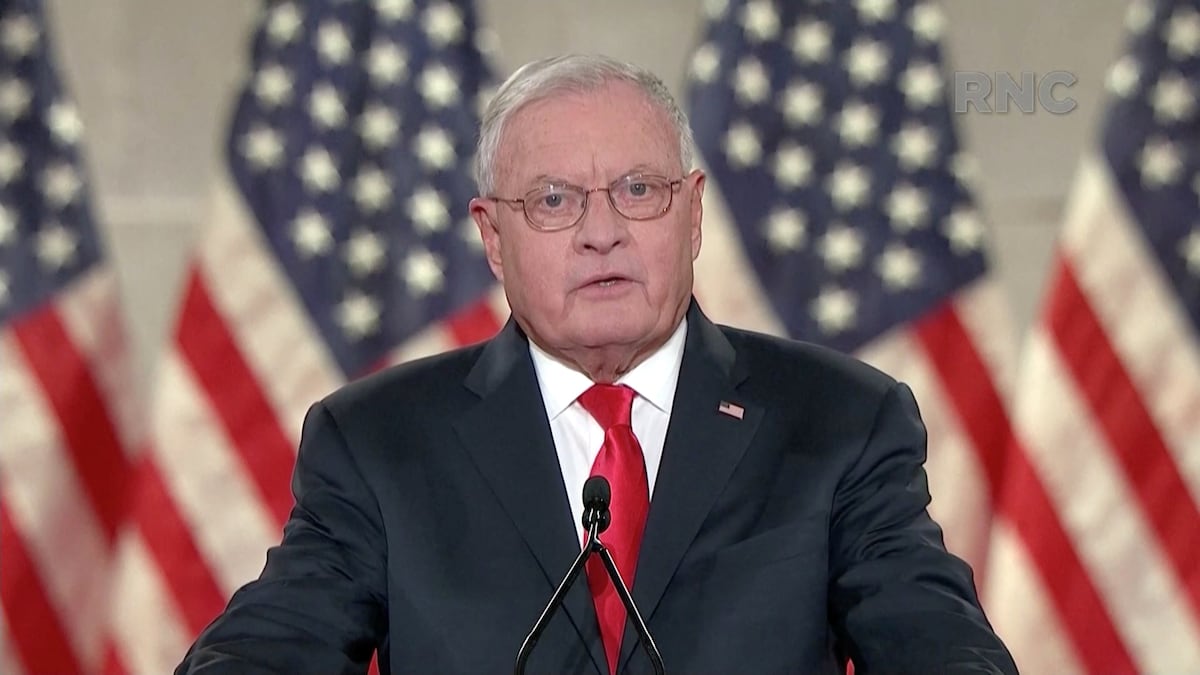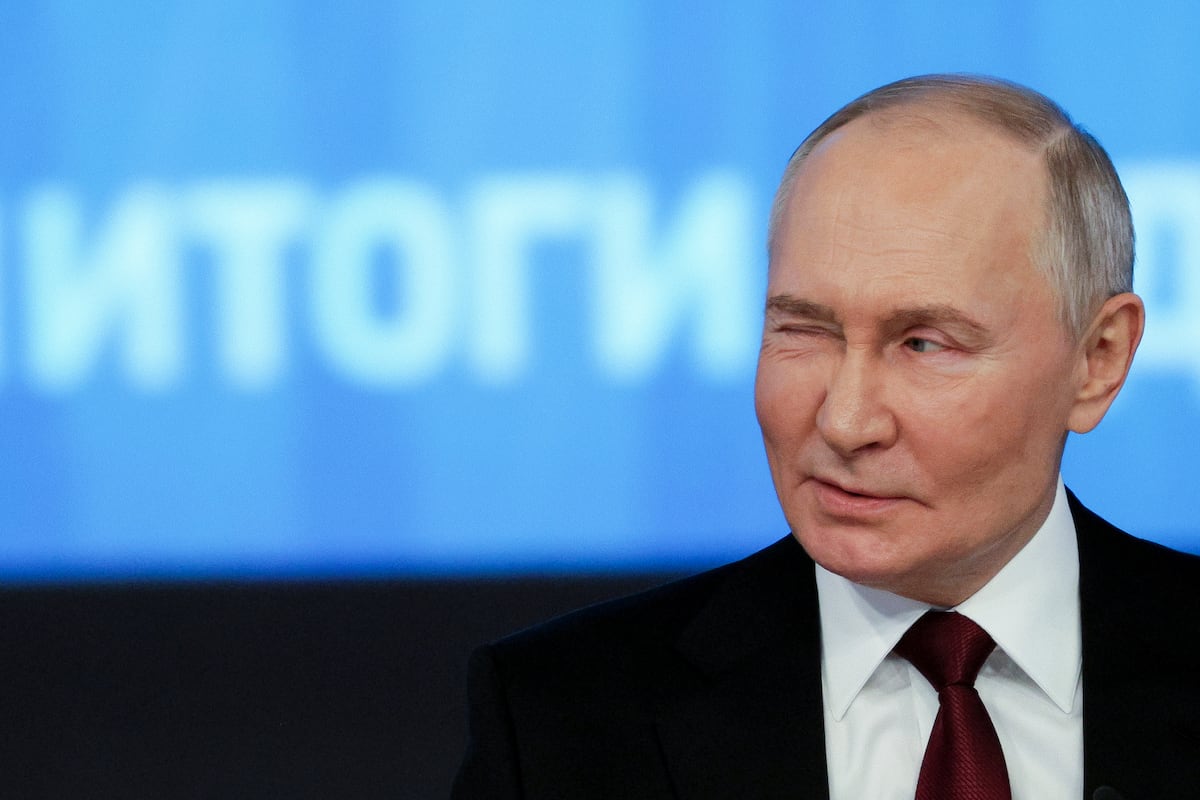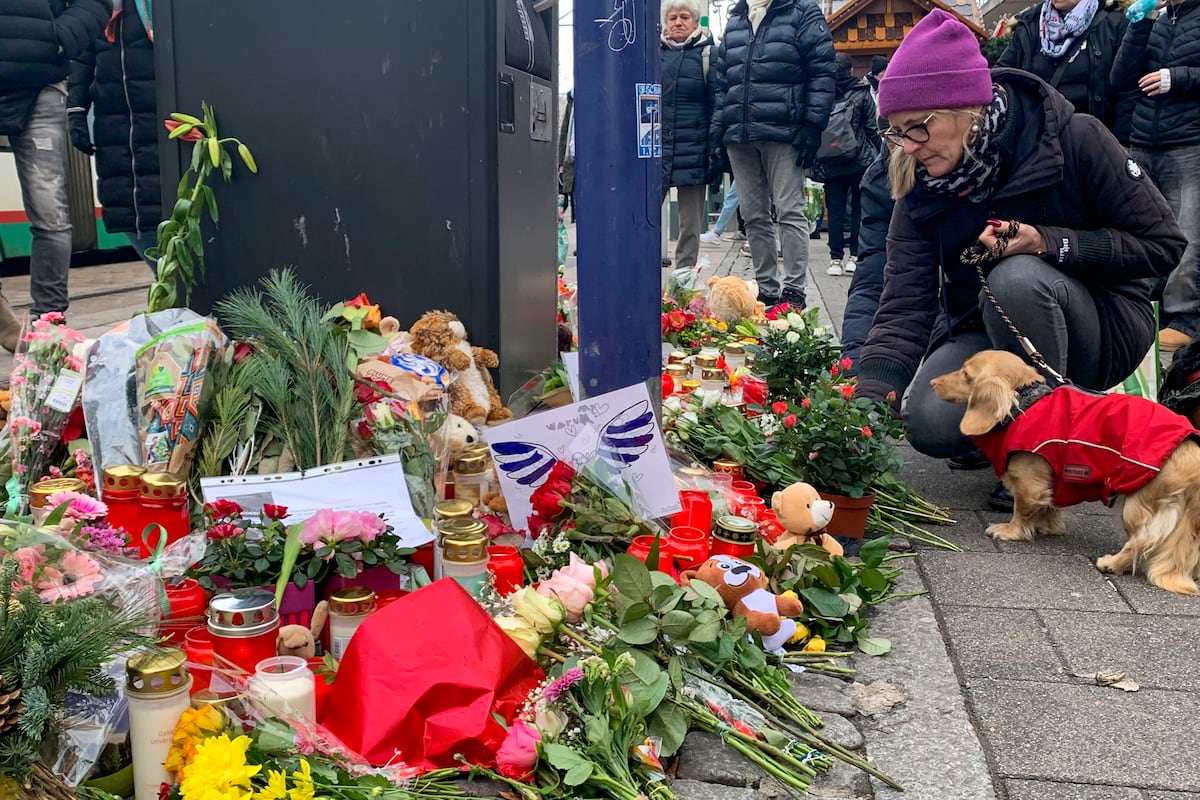The elected president of the United States, Donald Trump, has decided to create a new position of assistant to the president and special envoy for Ukraine and Russia to try to achieve peace between both countries. He has appointed retired General Keith Kellogg, 80, who in his previous term was national security advisor to his vice president, Mike Pence, to that responsibility. Kellogg, a highly decorated retired lieutenant general, has been in favor of making military aid to Ukraine conditional on the kyiv government sitting down to negotiate peace with Moscow.
Trump promised on the campaign trail that he would end the war in Eastern Europe in just one day, or even before taking office. For now, hostilities between both countries have intensified. Many fear that Trump’s solution involves forcing Volodymyr Zelensky to negotiate and accept territorial cessions under the threat of withdrawing military aid from the country.
“I am pleased to name General Keith Kellogg as Assistant to the President and Special Envoy for Ukraine and Russia,” Trump wrote on his social network, Truth. “Keith has developed a distinguished military and business career, which includes performing very sensitive National Security functions in my first Administration. He was with me from the beginning. “Together, we will ensure PEACE THROUGH STRENGTH, and we will make America and the world SAFE again,” he added, with his emphasis on capital letters. In addition to being an advisor to Mike Pence, Kellogg was chief of staff at the National Security Council and later acted as Trump’s acting security advisor after the resignation of Michael Flynn.
Kellogg was co-author of an article published last April by the America First Policy Institute in which, under the title of America first, Russia and Ukraine,defended the thesis that Moscow’s invasion of the neighboring country was an avoidable crisis that, “due to the incompetent policies of the Biden Administration and the rejection of the America First approach to national security, has entangled the United States in an endless war ”.
According to the retired general, “to end the war between Russia and Ukraine will require strong leadership, prioritizing the United States, to reach a peace agreement and immediately end hostilities between the two warring parties.”
The article was an amendment to Joe Biden’s entire foreign policy regarding Ukraine. He rejected that the current president criticized “as pro-Russian, pro-Putin, anti-democratic and isolationist” anyone who has opposed or even expressed skepticism about US military aid to kyiv.
Joe Biden’s administration has provided more than $56 billion in security aid to Ukraine since the start of the Russian invasion in February 2022 and expects to send billions more before Biden leaves office on January 20. The United States has recently increased arms shipments and forgiven billions in loans to kyiv.
“Although some American critics of military aid to Volodymyr Zelensky’s government may indeed be isolationists, the vast majority are Americans concerned that vital US strategic interests are at stake in the war in Ukraine, due to the possible involvement of military forces. Americans and in case the United States is engaged in a proxy war with Russia that could lead to a nuclear conflict. They also see the need to establish a plan to end this war and not simply provide weapons for a conflict that appears to have become a long-term stalemate,” he wrote with Fred Fleitz, vice president of the Center for American Security.
Much of the article was aimed at criticizing Biden for not having been able to prevent war or the conflict from becoming entrenched. He defended the relationship that Trump and the Russian president, Vladimir Putin, had in his first term. “Biden replaced Trump’s approach with a liberal internationalist one that promoted Western values, human rights and democracy. Contrary to the Trump Administration’s America First stance on national security, Biden’s approach put the idealistic agendas of the global elite ahead of a working relationship with Russia. Biden was not interested in working with Putin. “I wanted to lecture him and isolate him,” he maintained.
“Peace Talks”
More important than these reproaches, in the context of his current appointment, are the recommendations he made about the path forward: “What we should not continue doing is sending weapons into a stalemate conflict that Ukraine will end up having difficulty winning. This should begin with a formal US policy to bring the war to an end. Specifically, it would mean a formal US policy to seek a ceasefire and a negotiated solution to the Ukrainian conflict. The United States would continue to arm Ukraine and strengthen its defenses to ensure that Russia makes no further advances and attacks again after a ceasefire or peace agreement. However, future US military aid will require Ukraine to engage in peace talks with Russia. To convince Putin to join peace talks, President Biden and other NATO leaders should offer Ukraine to defer NATO membership for an extended period of time in exchange for a comprehensive, verifiable peace agreement with security guarantees,” he maintained.
In that same text, he also stated: “President Donald Trump also has a strategy to end the war that he has not fully revealed. “We are hopeful that there will be a new president in January 2025 who will put these America First ideas into practice to end this devastating conflict.”
Kellogg downplayed Trump’s remarks last February that he would “encourage” Russia to “do whatever the hell it wants” against any NATO country that he believes does not spend enough on defense. collective. “We know what he means when he says it,” the retired general justified.
After the general’s appointment as envoy to Russia and Ukraine was announced, Michael Waltz, proposed by Trump as national security advisor and also critical of aid to Ukraine, congratulated him through social networks. “Keith has dedicated his life to defending our great country and is committed to bringing the war in Ukraine to a peaceful resolution,” he tweeted.









